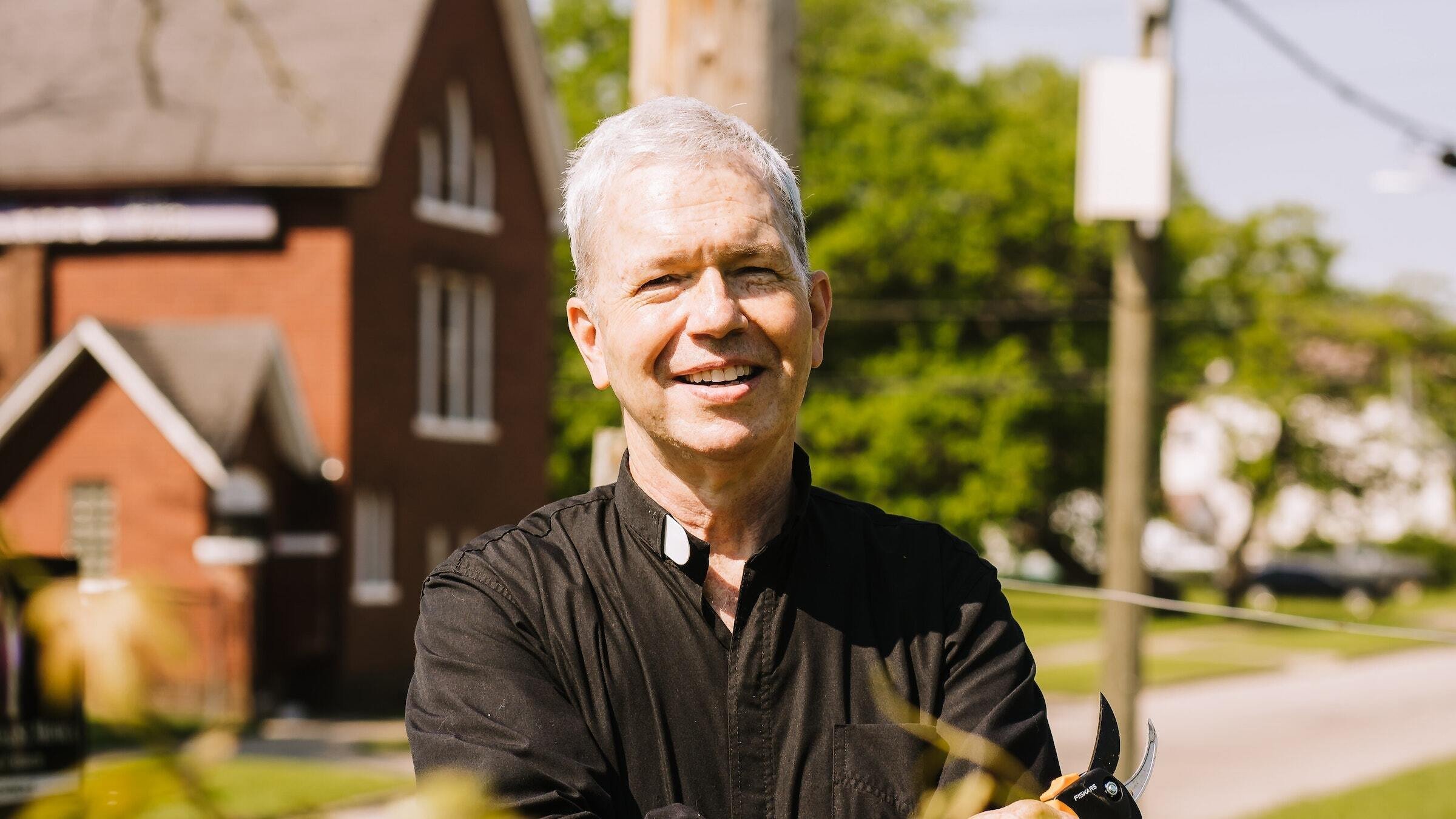East-side Detroit pastor, seminary mentor was 'one of the finest priests in the history of the Archdiocese of Detroit,' bishop says
DETROIT — There likely aren’t enough adjectives to describe the impact Msgr. Daniel Trapp had on the life of the Archdiocese of Detroit during his 39 years as a priest.
But few people could sum it up better than his good friend and spiritual confidant, Detroit Auxiliary Bishop Gerard W. Battersby.
“He was one of the finest priests in the history of the Archdiocese of Detroit,” Bishop Battersby said. “He was just a tremendous human being and an exemplary priest.”
Such lofty praise is befitting of a man whose priesthood touched countless lives across southeast Michigan, not least of which were at Sacred Heart Major Seminary, where he taught and advised seminarians for 35 years, and at his beloved east-side Detroit parish, St. Augustine and St. Monica, where his ubiquitous and missionary spirit transformed an entire community.
A dynamic and impactful preacher, a brilliant theologian and teacher of the faith, a compassionate pastor with a heart of gold, and a spiritual father to generations of priests, Msgr. Trapp’s earthly pilgrimage was completed Jan. 26 with his death after a brief illness. He was 66.
While Msgr. Trapp was all of those things and more, those who knew him best say he was fundamentally only one thing: a faithful disciple of the Lord Jesus Christ.
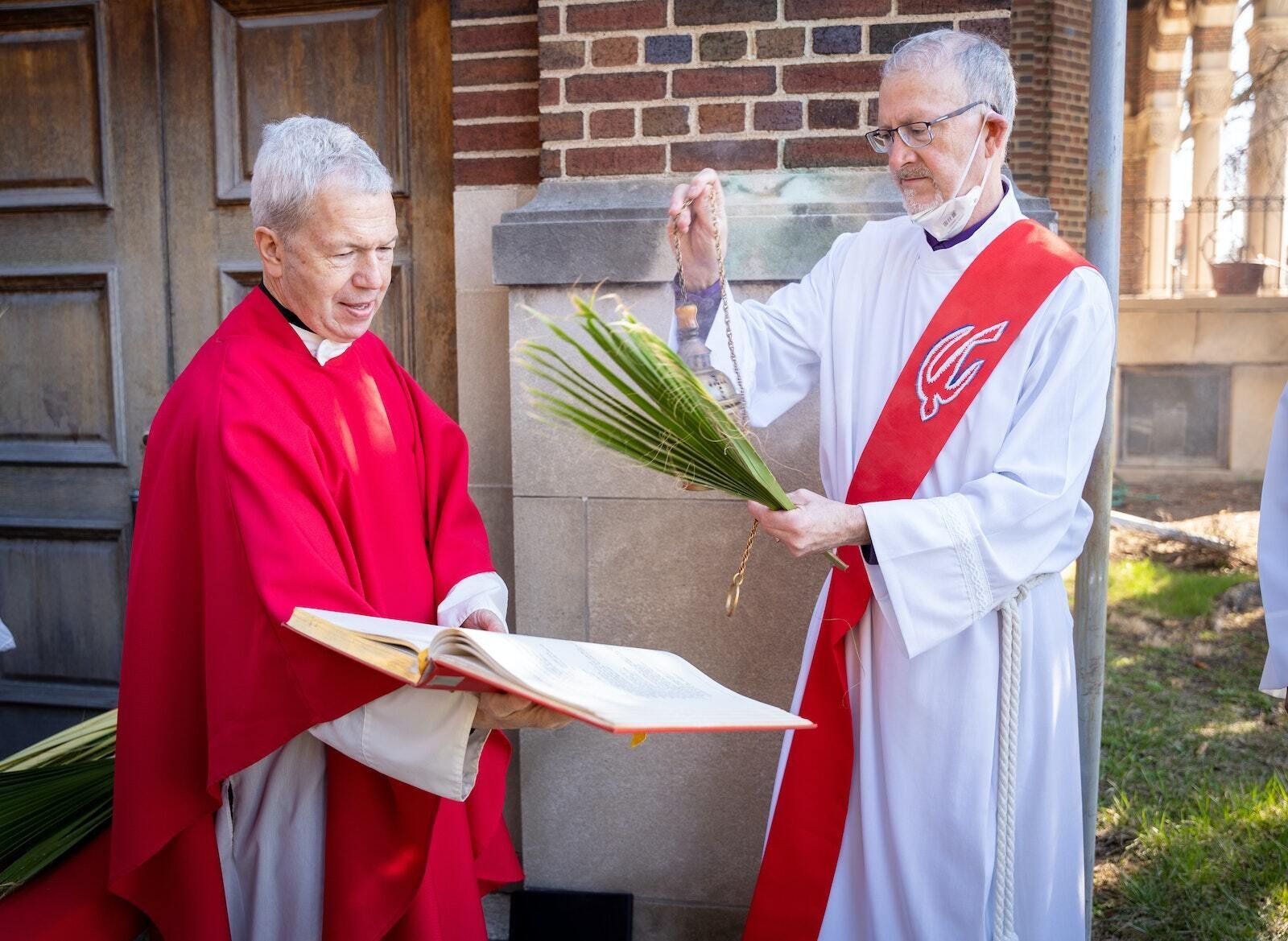
“His life was more than just a vocation or a calling,” Kathleen Williams-Trice, coordinator of parish ministries for St. Augustine and St. Monica, told Detroit Catholic. “It was truly anointed. I’ve never experienced anything like it. If you knew him, you knew he was just the epitome of Christ.”
Daniel John Trapp was born Jan. 14, 1958, in Detroit to John and Barbara (nee Quirk) Trapp. After graduating from Divine Child High School in Dearborn in 1976, he discerned early that the Lord was calling him to service, and he entered Sacred Heart Seminary soon after high school.
With a passion for history — especially Church history and the history of his own city of Detroit — he earned his undergraduate degree in that subject in 1980, and was then sent to study at the Pontifical Gregorian University in Rome, earning his theology degree three years later.
Cardinal Edmund C. Szoka ordained him a priest for the Archdiocese of Detroit on Dec. 15, 1984. After brief stints as an associate pastor at St. Christopher Parish on Detroit’s west side (1984-85) and St. Clement Parish in Center Line (1985-86), Cardinal Szoka sent him back to Rome to complete his licentiate and doctorate in sacred theology at the Pontifical Athenaeum of Saint Anselm.
Then-Fr. Trapp returned to the Archdiocese of Detroit in 1989 and immediately joined the faculty of the newly re-founded Sacred Heart Major Seminary, which had added a graduate school of theology under Cardinal Szoka’s pioneering vision the year before.
For the next 35 years, he would serve as an adjunct and full-time associate professor of systemic theology, liturgy and sacraments, a graduate spiritual director to hundreds of seminarians, and a trusted adviser and friend to generations of bishops, priests, religious and laypeople.
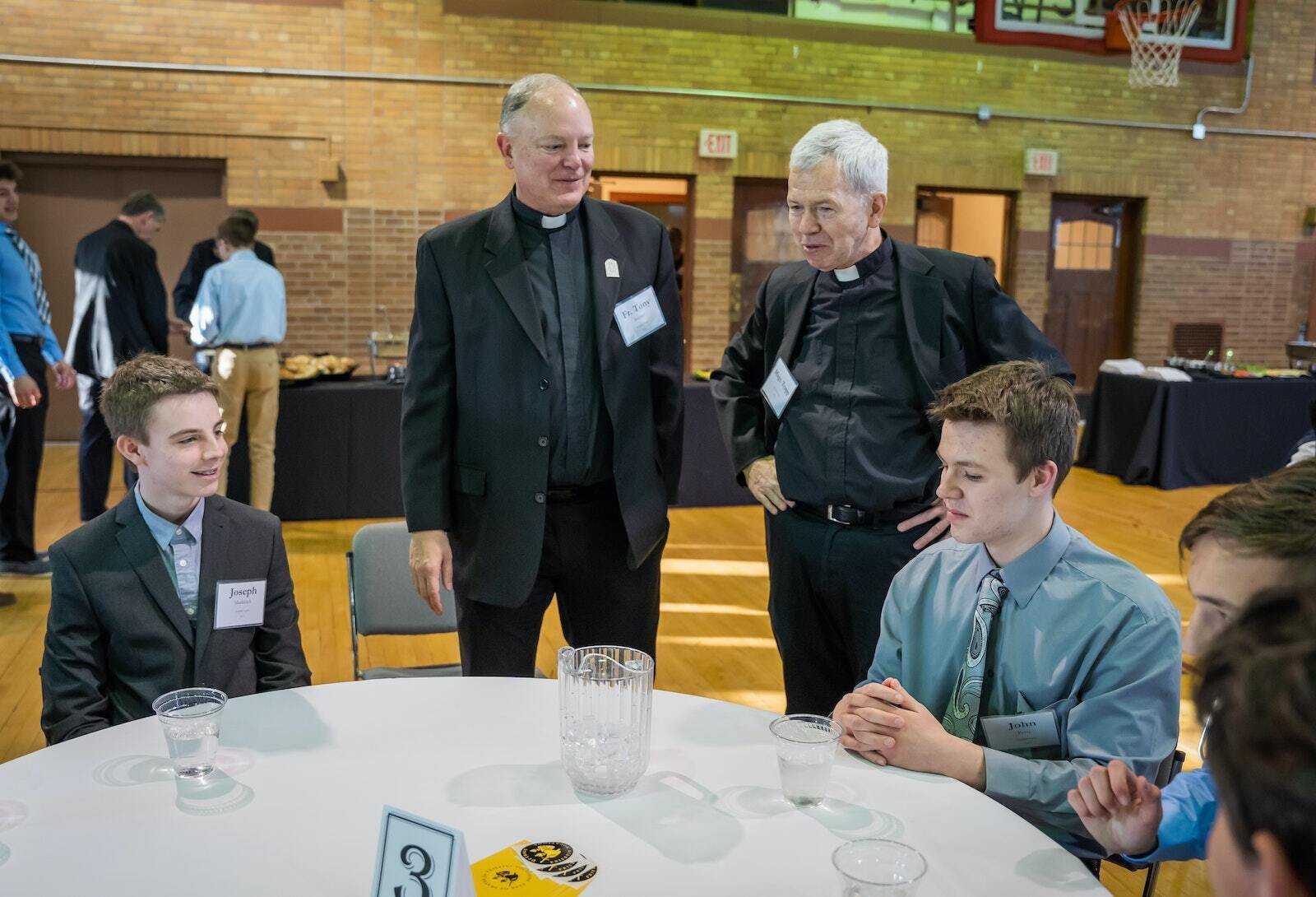
“Among current priest faculty members here at Sacred Heart, Msgr. Trapp was the longest serving by many years," said Fr. Charles Fox, current vice rector of Sacred Heart. "I believe he appreciated his role as an elder brother among the fathers of Sacred Heart, and we priests benefitted greatly from his wisdom and goodness.”
A down-to-earth priest, Msgr. Trapp’s sense of the sacramental nature of the Church and how the economy of grace intertwined with the pastoral needs of God’s people earned him a reputation as one of Sacred Heart’s most sought-after voices.
While mentoring and educating seminarians — including Fr. Fox, who was ordained in 2006 — Msgr. Trapp also became a spiritual mentor to other faculty members, encouraging them in their own vocations and strengthening their resolve to be good shepherds.
“He was my spiritual director, and for 30 years, he was the spiritual director of many seminarians and priests,” said Bishop Battersby, who served as vice rector of Sacred Heart from 2011-16. “Not only was he a gifted spiritual father, but he was, humanly speaking, a man with a fine sense of humor and a real kindness. His is a loss that won’t be easily compensated for.”
Msgr. Trapp’s courses on the sacraments, especially the sacrament of penance, resonated with priests and seminarians for their approachability and his “unshakeable faith in the saving power of Jesus,” Fr. Fox added.
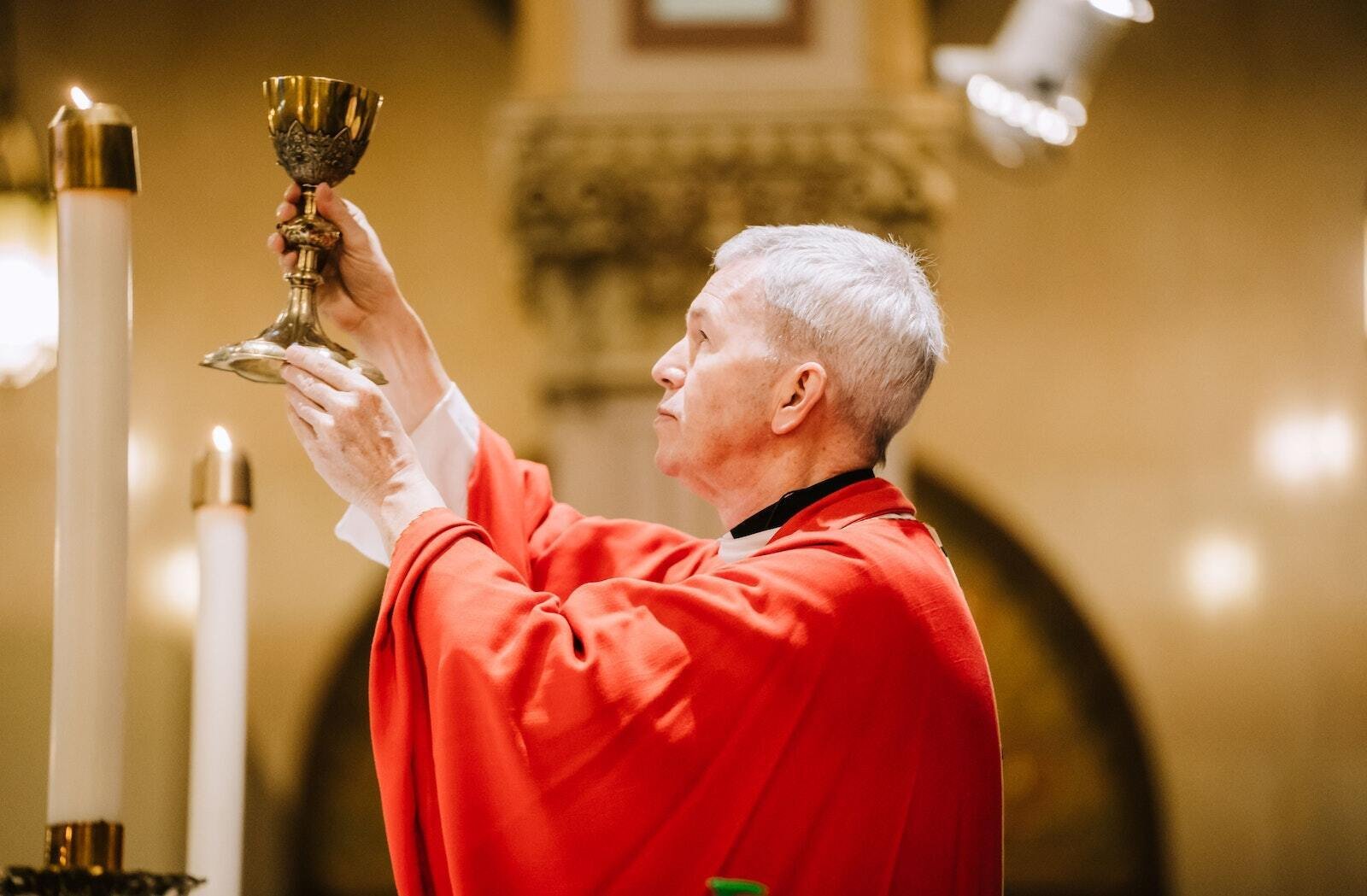
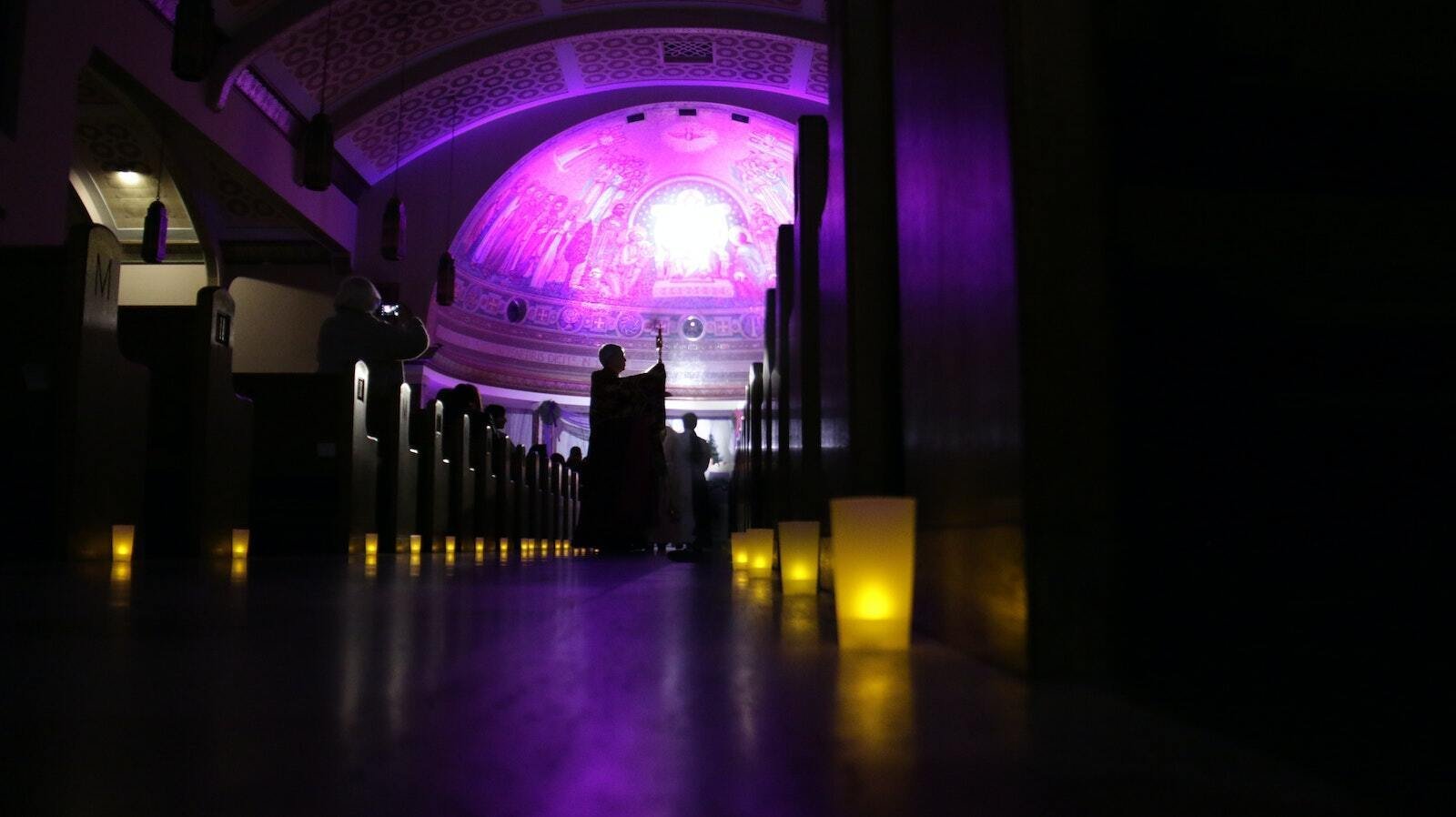
"I feel Msgr. Trapp's influence on me every time I hear confessions. Monsignor heard my confession many times, and he also taught the course I took in the sacrament of penance," Fr. Fox said. "His insights into the power of the sacrament, his kind and faithful approach to the ministry of confessor, and even some of his mannerisms have crept into my own priestly ministry.
“I couldn't begin to tell you how many priests could testify to the holy influence Msgr. Trapp had on them during the critical years of their seminary formation,” Fr. Fox added. “He was unfailingly kind, caring, and available to anyone who needed to talk to him about their walk with the Lord.”
Fr. Fox said Msgr. Trapp’s devotion to the Eucharist strengthened his own love for the sacrament, and that his insistence upon prayer was a hallmark of his spiritual direction.
“’Are you bringing that to Jesus in prayer?’ was a frequent question Msgr. Trapp would ask in spiritual direction when it came to the troubles his directees faced — such simple, and yet such absolutely essential, advice to give to people burden by worries,” Fr. Fox said. “His simplicity of life continues to challenge me. He was truly a witness to the truths he taught. As they say, he walked the walk.”
To better connect seminarians with the reality of Christ’s mercy, Msgr. Trapp organized and led Sacred Heart’s Desert Formation Experience, an annual pilgrimage to the Holy Land during which he led worship and tours to some of the most sacred sites connected to the life of Jesus.
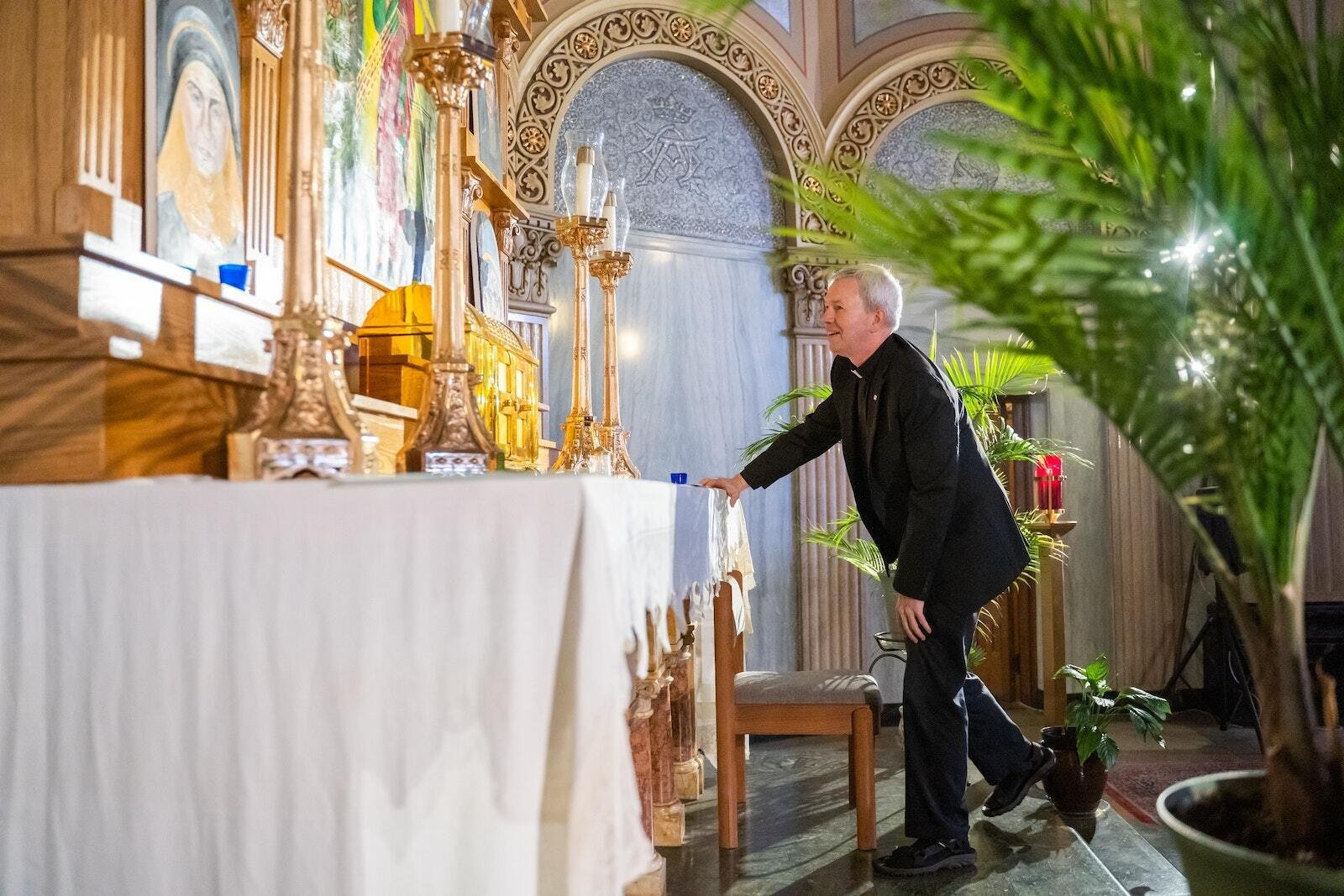
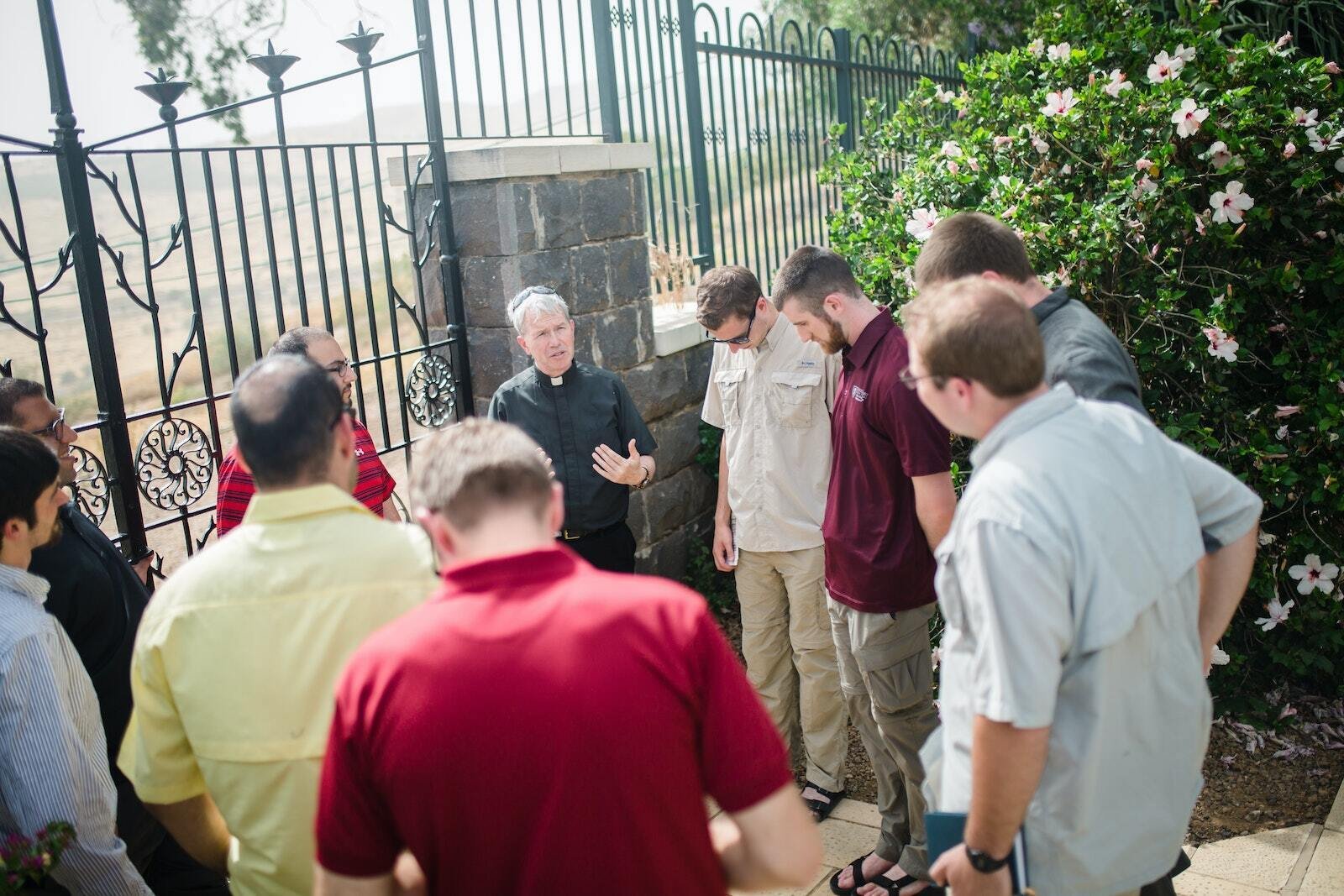
“He was often a better tour guide than the guides we hired,” recalled Bishop Battersby, who joined Msgr. Trapp on several pilgrimages. “He was very passionate about not only history, but biblical history. He was just deeply devoted to the Word and to Our Lady. He brought the extraordinary to an ordinary level.”
While seminary ministry could be considered a full-time job for some, Msgr. Trapp never left parish work, a side of his ministry that informed his preaching, teaching and spiritual direction at Sacred Heart.
In his early years, he served as a weekend support priest at St. Mary in Wayne (1990-91), St. Anselm in Dearborn Heights (1991-92), as administrator of several parishes, including SS. Andrew and Benedict in Detroit (1992-95), All Saints in Detroit (1992-95), Divine Providence in Southfield (1995), and as pastor of Holy Cross (Hungarian) Parish in Detroit (1993-95).
In 1995, then-Fr. Trapp was asked to become administrator of St. Augustine and St. Monica, a predominantly African-American parish on the city’s east side, and the next year he became the community’s full-time pastor. Over the next three decades, Msgr. Trapp poured himself out in service of the parish, modeling unconditional love for the betterment and spiritual edification of his parishioners and neighbors.
Despite his many commitments, out-of-state speaking engagements, archdiocesan and seminary responsibilities, Msgr. Trapp never made anyone feel that he didn’t have time for them.
“He worked so hard for his parish and his community, and his conviction was just unending, even through sickness and illness,” Williams-Trice said. “He just had an undying love for the work he was doing, a true servant of God in every sense of the word. He attended every personal event of his parishioners — weddings, baptisms, first Communions, even birthdays — he never wanted to get a replacement or a sub.”

Despite receiving the honorary title of “monsignor” from Pope Benedict XVI in 2012, Msgr. Trapp was happy being known around the parish simply as “Father Dan,” Williams-Trice said.
“If there ever was a masterclass on being the most human, spiritual person, that was him,” Williams-Trice said. “His first thought was always his parish and his parish community. Before he got sick this last time, he was driving up to his cottage up north and he stopped to see a parishioner who had been away from the Church for four years. That’s just how selfless he was.”
Msgr. Trapp had a particular heart for the city's African-American community and had been writing a book about the history of African-American families in Detroit at the time of his death, Williams-Trice said.
“He was so devoted to the cause of African-Americans and African-American history, especially Black Catholic American history, that he had taken on a personal research project on some of the first Black Catholic families in the city of Detroit,” Williams-Trice said. “He actually started a tradition here at our parish, where he gave a presentation on the indigenous families of Detroit, the French, African and the Native American traditions, and we celebrate that every New Year’s Day.”
Msgr. Trapp was a strong advocate for racial and social justice, leading prayerful demonstrations in downtown Detroit after the 2020 death of George Floyd and sending cards to the family of Tyre Nichols, a young Black man who was beaten to death by five police officers during a traffic stop last year in Memphis, Tenn.
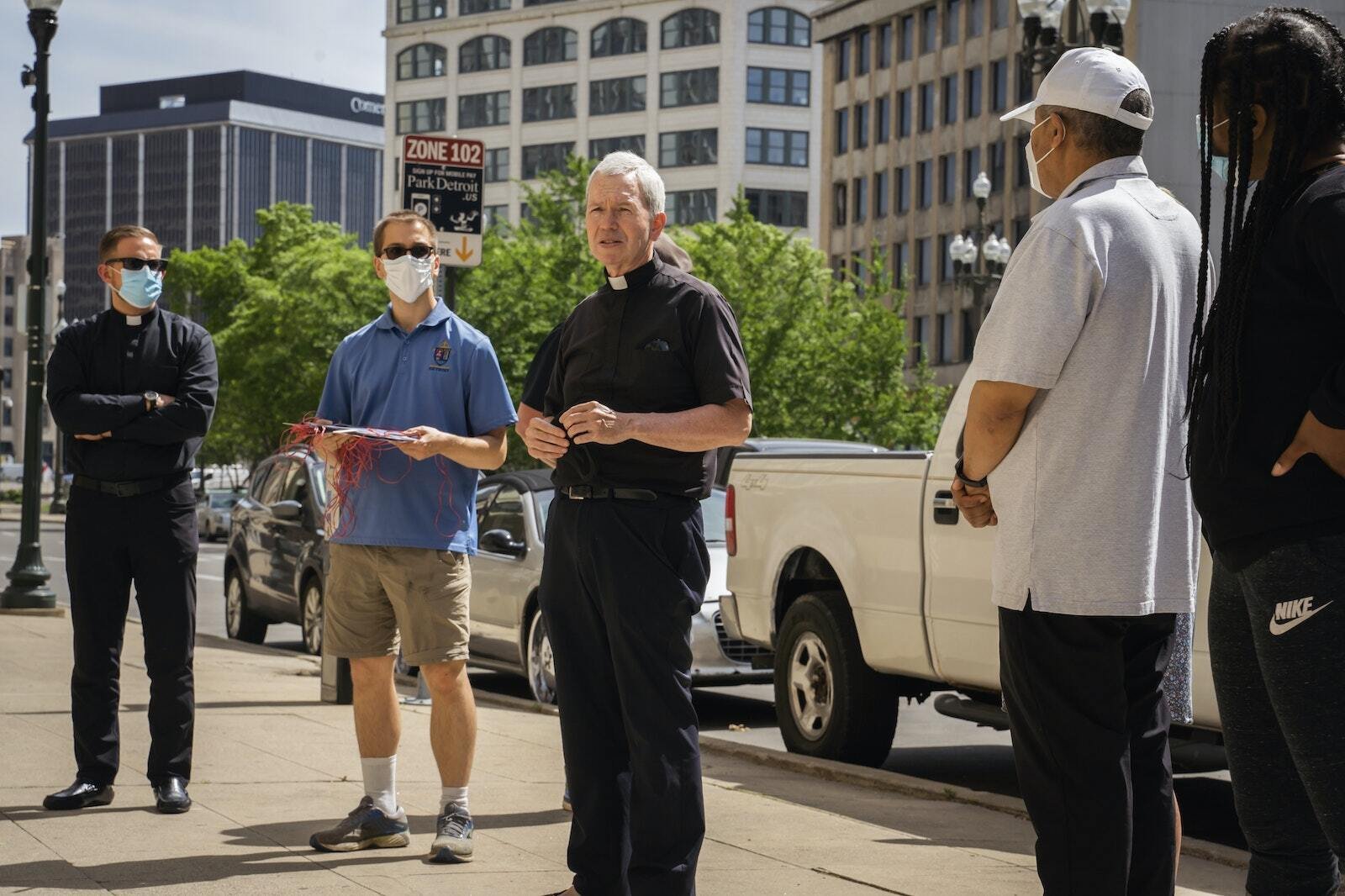
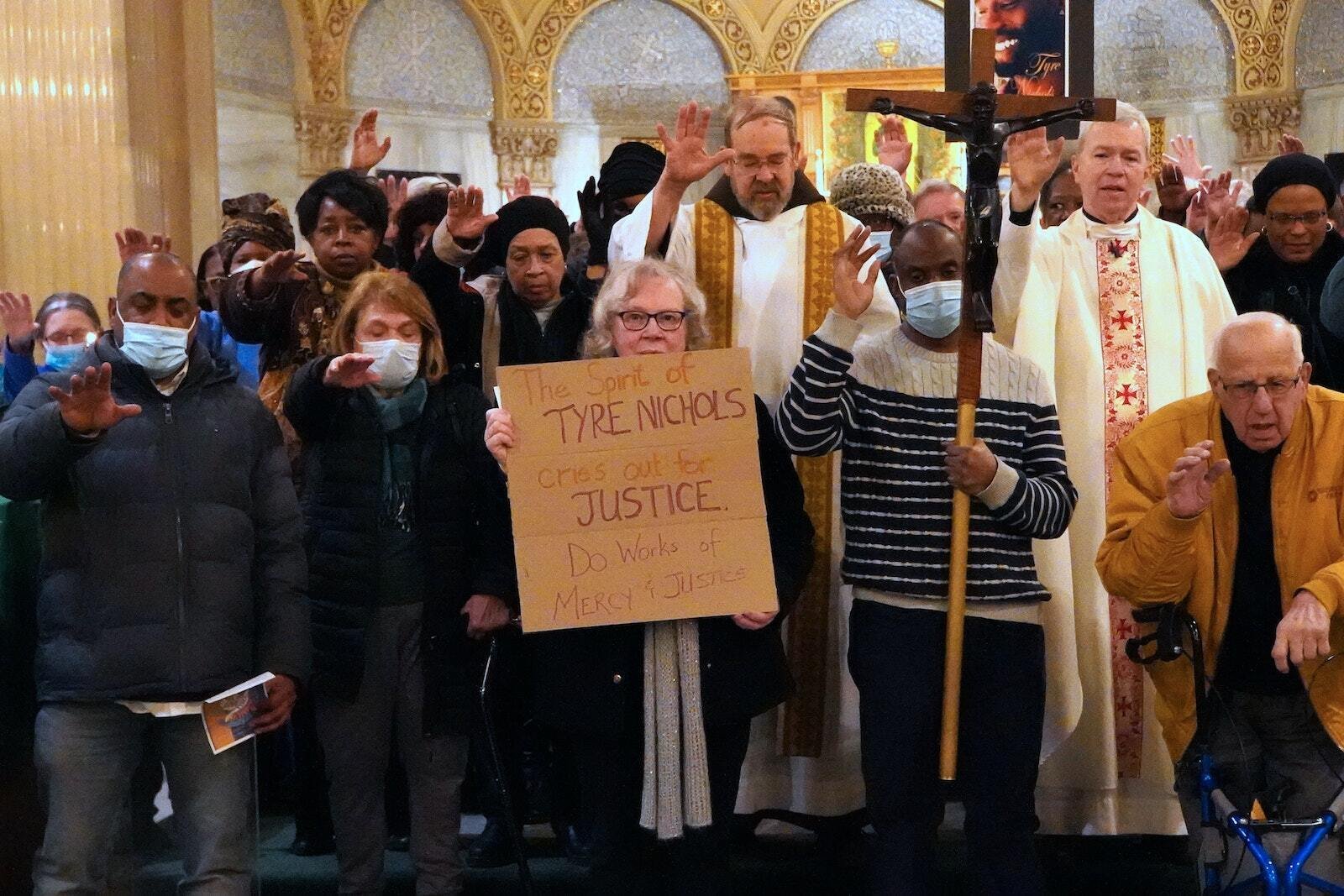
In every painful situation, Msgr. Trapp sought to bring Christ’s healing balm.
Msgr. Trapp’s homilies and talks — often about the overwhelming love of God and the power of mercy offered by Jesus on the cross — frequently brought parishioners to tears, and, more importantly, to action, Williams-Trice said.
“Listening to him was the closest experience I’ve ever had to Christ,” Williams-Trice said. “It was as if he became Jesus up there on the altar. I truly understand what it means that our priest becomes Jesus’ representative. He was that for everyone he met, every life he touched.”
Msgr. Trapp’s concern for the community reached into the neighborhoods surrounding St. Augustine and St. Monica, which he viewed as an extension of his flock. In the 1990s, he formed a nonprofit to buy abandoned and blighted houses in the area, working with volunteers and Detroit-based contractors to clean up alleys and fix up dwellings for families in need of affordable housing.
A strong believer in the parish as an anchor of the neighborhood, Msgr. Trapp promoted involvement in the Pingree Park Neighborhood Association, which met at the parish, and used it as a springboard to offer a host of community services, including a food pantry, pregnancy center, warming shelter and even a charter school based out of the parish.
“He was such a visionary and always looking forward,” Williams-Trice said. “One of his goals was to provide housing and serve the underserved, bringing back the city and revitalizing this area before anybody else had the idea.”
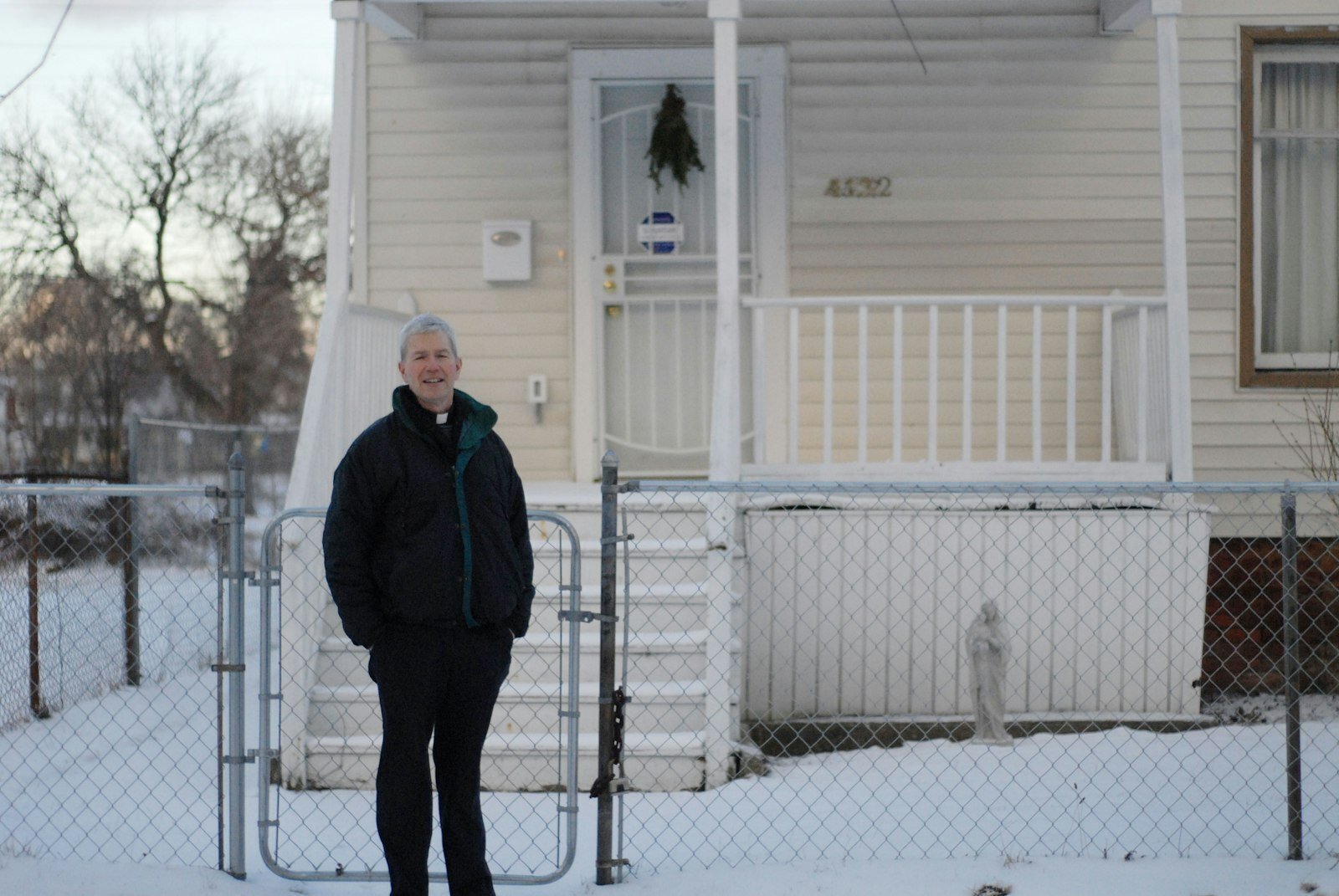
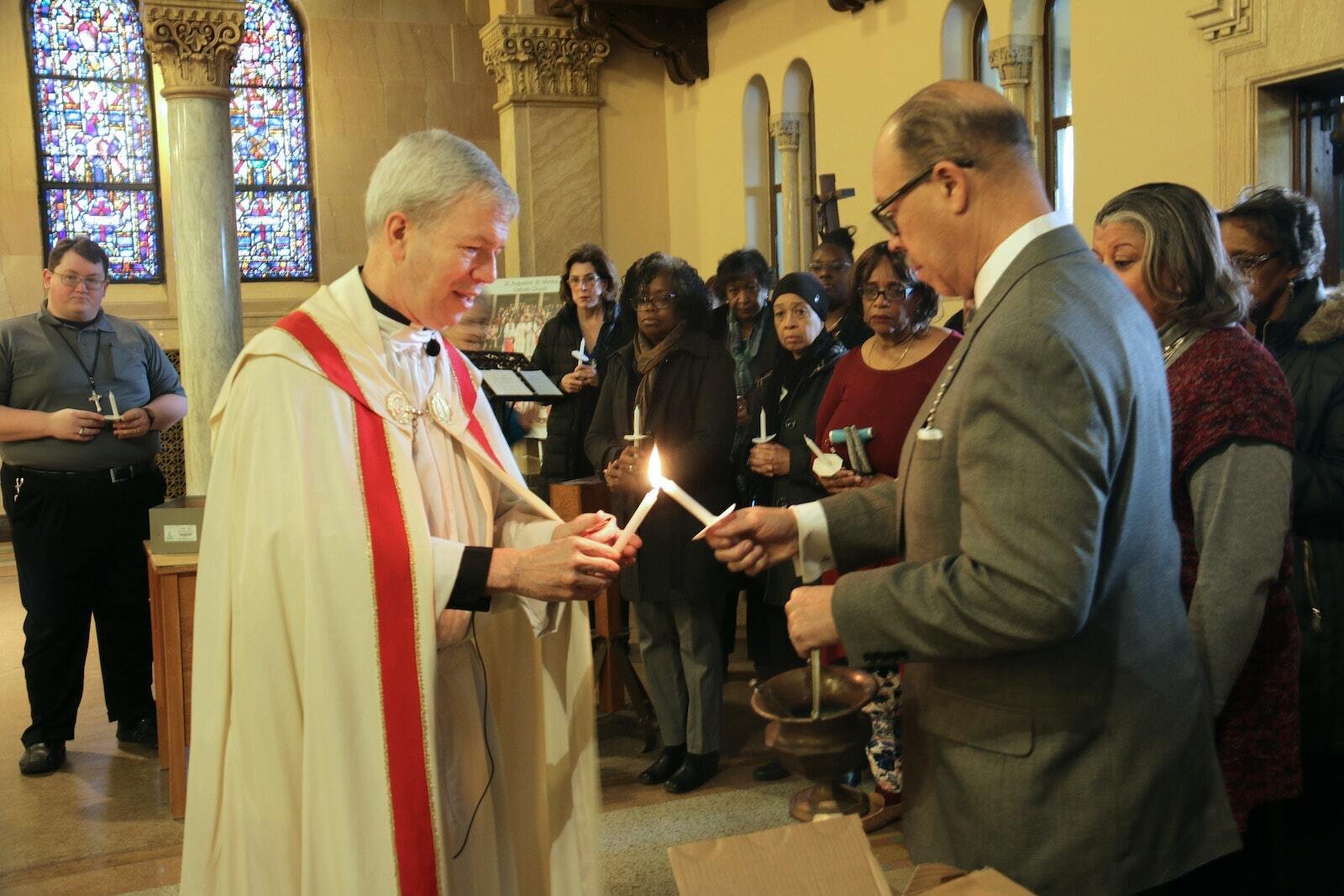
During winter cold snaps, St. Augustine and St. Monica would open its doors to those who didn’t have a place to keep warm, sometimes bringing in as many as 50 cots to set up in the church social hall, while volunteers provided hot meals, blankets and toiletries.
The parish's former convent had been transformed into a halfway house to provide substance abuse treatment and residential services for women, and Msgr. Trapp was working to expand those services.
“He was working on another program that would help men transitioning back into society, to provide a place for them get jobs, and the basic necessities of life,” Williams-Trice added. “He was just always thinking and creating opportunities for people.”
While Msgr. Trapp was visibly concerned for his neighbors’ physical needs, he was just as concerned for their spiritual wellbeing. Shortly after arriving at the parish in 1995, he began a door-to-door outreach program to invite fallen-away Catholics — or even those who had never been to church — to become part of the community, handing out Bibles and praying with those who wanted it.
“He was working toward the goal of trying to reach out to everyone and bring them back to the church,” Williams-Trice said. “There are lot of people in this community who have been away from the Church for a very long time, and for him, evangelization was nonstop.”
Apart from his work in the parish and at Sacred Heart, Msgr. Trapp was an invaluable adviser to Detroit Archbishop Allen H. Vigneron, serving on the archdiocesan College of Consultors and Presbyteral Council, and he was a third-degree member of the Knights of Columbus and fourth-degree Knight of St. Peter Claver.
“He had a profound impact on the local Church because of his unstinting generosity of service,” Bishop Battersby said. “He was an individual who, in his person, embodied four decades of the history of the archdiocese and presbyterate of Detroit.”
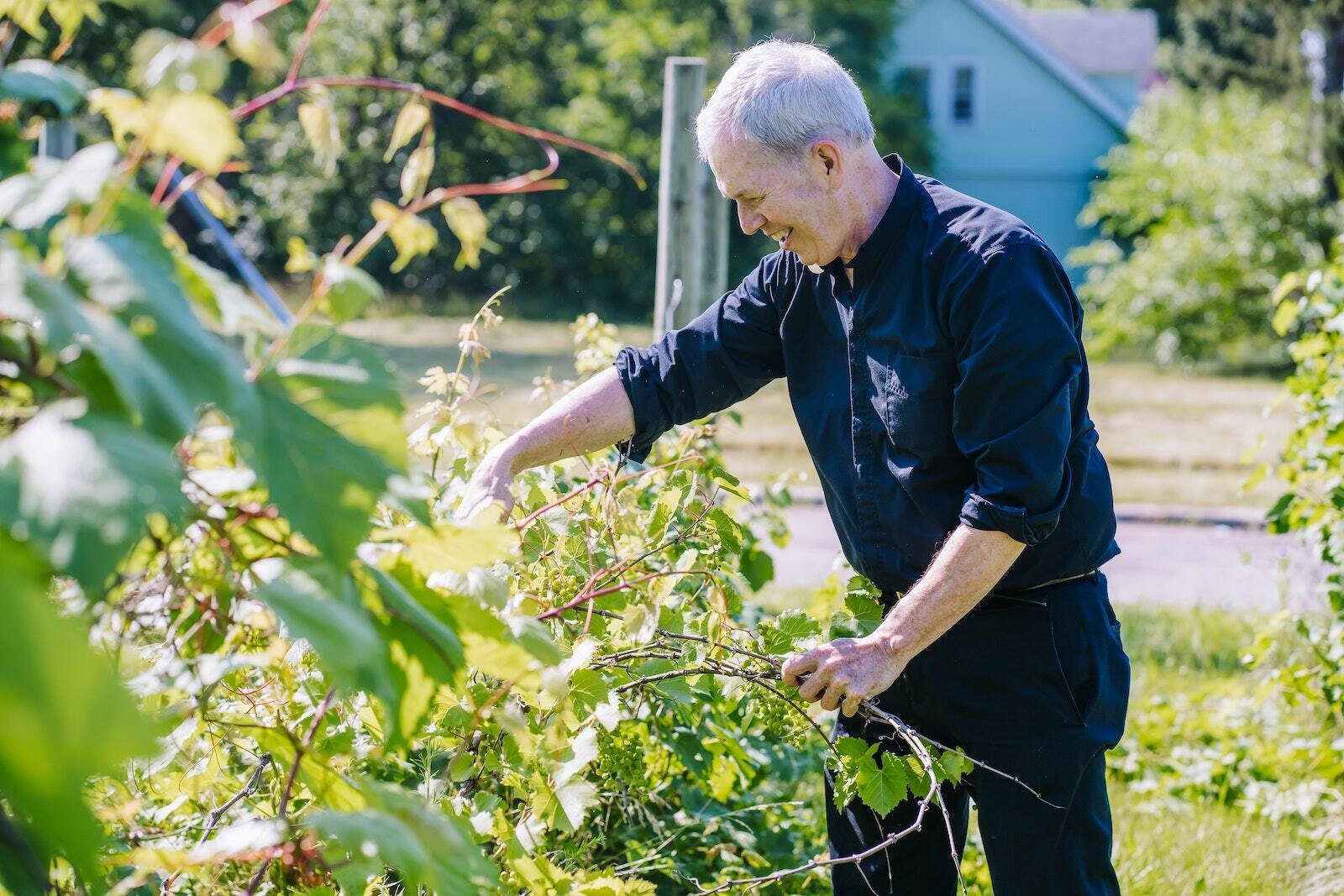
As if a metaphor for his life of service, one of the personal projects for which Msgr. Trapp became known in his later years was a vineyard he planted in a vacant lot on the corner of Canfield and Van Dyke, a project inspired by his experience growing grapes in northern Michigan.
More than just a hobby or an experiment in urban farming, Williams-Trice said, Msgr. Trapp saw the project as a “representation of the work he was trying to do here.”
“He wanted to make us all coworkers in the Lord’s vineyard, and for that reason, he didn’t want a fence around it,” Williams-Trice said. “He wanted people to be able to just come to the vineyard and get grapes. He was just a man for others, and he believed in that wholeheartedly. He taught us all well.”
Msgr. Trapp is predeceased by his parents, John and Barbara; his brother, John; and his sister, Kathryn. He is survived by his sisters Julie (Patrick) McClure, Sally (Jeffrey) Ludwig, Mary (Dan) Gray, and Carolyn Trapp (Garrett Cobarr); his aunt, Madeline Quirk, as well as cousins and many nieces and nephews and great nieces and great nephews.
Msgr. Trapp will lie in state Thursday, Feb. 1, from 3-8 p.m. at Sacred Heart Major Seminary, 2701 W. Chicago Blvd., Detroit. Visitation will continue Friday, Feb. 2, from 4-7 p.m., with a Scripture service at 7 p.m., at St. Augustine and St. Monica Parish, 4151 Seminole St., Detroit, and on Saturday, Feb. 3, from 11:30 a.m. at the Cathedral of the Most Blessed Sacrament, 9844 Woodward Ave., Detroit, until his funeral Mass at 1 p.m. Msgr. Trapp’s funeral Mass will be livestreamed.
Msgr. Trapp will be interred at Holy Sepulchre Cemetery in Southfield.


